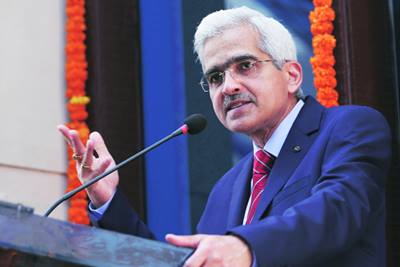The government’s revenue and the fiscal deficit targets envisaged in the Budget for 2017-18 are realistic enough and the actual deficit for the next fiscal could potentially be even lower than the targeted 3.2%, economic affairs secretary Shaktikanta Das told FE’s Prasanta Sahu and Banikinkar Pattanayak in an interview. Edited excerpts:
What is the rationale for amending Section 10(38) of the I-T Act?
This has been done to essentially control penny stocks and shell companies which are being used by individuals to avoid paying capital gains tax. If an individual has not paid securities transaction tax (STT) then naturally the person cannot get a benefit from capital gains tax. You cannot have the best of both.
The FM has hinted at a further liberalisation of foreign direct investment regime…
One has to wait till these are finalised because there are very few sectors left to be liberalised. Most of the sectors are under the automatic route.
You may also like to watch:
[jwplayer G3sO1Pip]
The FM has projected a somewhat modest 12.3% increase in tax receipts and a very economical 6.6% rise in the size of the Budget, compared to a 17% and a 12.5% rise, respectively, in FY17.
One can say we are being conservative with regard to the revenue numbers but certainly the numbers are very realistic. We believe the unreturned cash after demonetisation as well as taxes to be paid by people after disclosure of their income under the Pradhan Mantri Garib Kalyan Yojana, 2016, would offer the government enough of a cushion next year.
Isn’t the disinvestment target for the next fiscal at R72,500 crore, a 60% rise over that for the current year, rather high?
This year we are doing disinvestments worth R45,000 crore and we can do another R45,000-50,000 crore easily next year. Another R11,000 crore will come from the listing of insurance companies and another up to R15,000 crore from strategic sales. Disinvestment receipts target of R72,500 crore next fiscal is achievable.
How much are you expecting from the demonetisation or the PMGKY? How much can taxes and penalties from individuals snared by tax sleuths fetch?
It would be wrong to presume a number. We have not factored in any proceeds from the PMGKY either in 2016-17 or in 2017-18. If that extra money comes, the government will reduce its borrowings next fiscal (even from the budgeted level of R3.5 lakh crore). The fiscal deficit number has been arrived at in a manner that if there is any change, the deficit will go only southward… It will go to below 3.2%.
Was there any budgetary support to banks for managing the demonetisation exercise?
This is part of banking operations and they have got cheap deposits. Now, they must capitalise on this and lend at lower interest rates. The RBI is counting the returned notes and we will soon know how much has not been returned.
How will the electoral bonds, meant for the purpose of making funding to political parties more transparent, work?
These bonds could have a validity of 15-30 days. These interest-free bonds cannot be traded and would become a waste paper if not utilised within the given time period.
Do you feel the fiscal consolidation will be contingent on containing the revenue deficit? is there a threat to the consolidation in 2017-18?
I do not foresee a situation where revenue receipts will not materialise because the estimates even on the non-tax side are lower than the revised estimates for 2016-17. However, there are three challenges for India and other emerging economies. First, the growing protectionism in developed countries. If this persists, the advanced economies will face adverse economic consequences. Second, the possible rise in crude oil prices. If oil prices go up, the production of shale gas will increase, which will have a softening impact on prices. Finally, the interest rate hikes by the US Federal Reserve. However, the US Fed had said it would raise interest rates four times in 2016 but they did not do so. Also, for 2017, the Fed had again indicated a similar number of hikes.
The FM has said the FIPB will no longer exist since most permissions are now via the automatic route. When exactly will this happen?
An alternative mechanism will be put in place over the next two months. One of the possibilities is that concerned ministries will take decisions and another one is that the existing regulators approve the investment proposals. The comptroller and auditor general of India has put the FY16 fiscal deficit at 4.31% of GDP compared with the government’s number of 3.9% of GDP…. We need to see how exactly the CAG has arrived at this number. It would not be proper to comment at this time.

